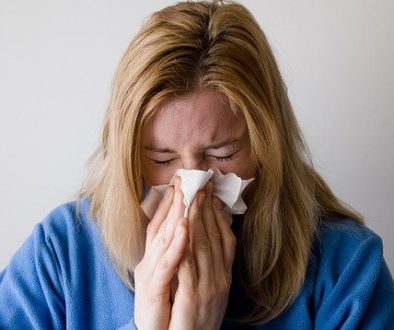How To Treat Eczema
Eczema, or atopic dermatitis, is an inflammatory skin condition that can start very early in life. It causes unpleasant outbreaks with symptoms such as rashes, itching, blisters, scales and crusts, but fortunately these can be prevented and treated.
Eczema may include other conditions too, such as contact dermatitis and occupational dermatitis. The chronic form can cause the skin to thicken and become extremely dry. In some instances, the skin can even change colour and darker. Scratching the affected areas may cause the skin to become infected.There are different types of eczema and you need to talk to your pharmacist for the right treatment.
How to avoid the triggers of eczema?
You can take the steps below to prevent or reduce the severity of eczema outbreaks:
- Choose cotton fabrics over wool and synthetic materials.
- Try several detergents until you find the least irritating option, which should be fragrance- and phosphate-free.
- Remove soap residue from fabrics by rinsing them thoroughly.
- Stay away from liquid or sheet fabric softeners.
- Don’t overheat your home.
- Avoid exposure to allergens such as pollen and animal hair.
- Protect against contact with dust mites by covering mattresses and pillows with dust-mite covers.
- Avoid scratching, and keep your nails short. Wearing cotton gloves or mittens prevents scratching, is a barrier against irritating products, and allows children to participate daily activities.
Tips and advice
The following skin care recommendations can help reduce the frequency and severity of eczema outbreaks:
- Take short (5- to 10-minute) lukewarm baths or showers.
- Use colloidal oatmeal bath products if large areas of skin are itchy.
- Use a mild, fragrance-free soap or soap-free liquid cleanser.
- Pat—do not rub—yourself dry so that the moisture stays on your skin. After bathing, immediately use a pH-balanced, fragrance-free body moisturizer to help retain the skin’s natural moisture.
- Cold, moist compresses can help with inflammation and itching.
Eczema treatment
Moisturizers should be used regularly. There are different types, such as ointments, lotions, and gels. Ointments are oil-based and trap the most moisture, but can be greasy and may not suitable for people with acne, or in hot environments since they can trap sweat. Choose a product that you’re willing to use multiple times a day.
Eczema outbreaks can be controlled with corticosteroid-based creams, and are chosen based on your age, the size and location of the affected area(s), and personal preferences. Generally, corticosteroids are used for up to two weeks, and then gradually reduced to prevent a rebound flare. Some people may also benefit from long-term therapy to prevent more flare ups.
Other medications such as tacrolimus can be used short-term or long-term as maintenance treatment to prevent new outbreaks. Topical antibiotics are sometimes required if there is an infection. An oral antihistamine may also be prescribed to reduce itching.
There are effective treatments for eczema. In some provinces, pharmacists may also prescribe the right treatment for you. Talk to your pharmacist or doctor, who will help you choose the best one for your situation and your individual skin needs.




